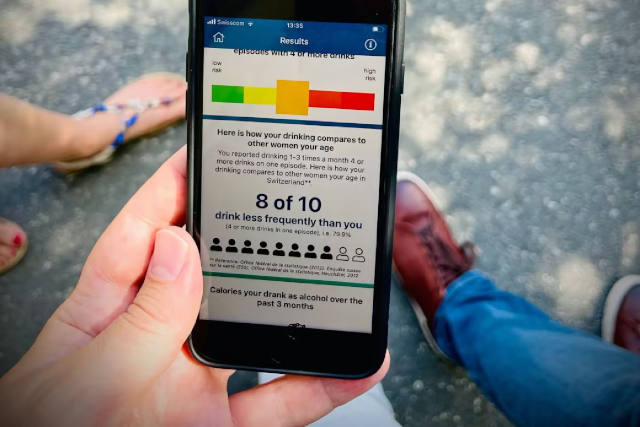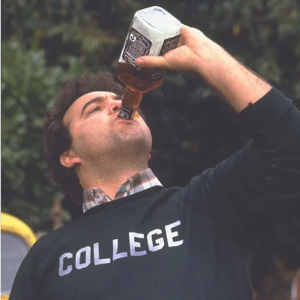College students have been yoked with a stereotype as notorious partyers and, in particular, outrageous drinkers. But binge drinking has become an epidemic. Now, a new smart phone app is aiming to raise college kids’ awareness of the dangers…

Some of us are old enough to remember the comedy film Animal House (1978). It stands out as perhaps the single most notorious public promotion of booze abuse in the 20th century.
Besides making mega-stars of actors including Bil Murray, John Belushi (see photo, top of page), Chevy Chase and Dan Akroyd, it triggered a whole subculture of alcohol abuse. If anything, that phenomenon is even bigger today.
A serious problem
The World Health Organization (WHO) provides frightening statistics on the health and social damage alcohol abuse causes:
- The harmful use of alcohol is a causal factor in more than 200 disease and injury conditions.
- Worldwide, 3 million deaths every year result from harmful use of alcohol. This represents 5.3 percent of all deaths.
- Overall, 5.1 percent of the global burden of disease and injury is attributable to alcohol, as measured in disability-adjusted life years (DALYs).
- Beyond health consequences, the harmful use of alcohol brings significant social and economic losses to individuals and society at large.
- Alcohol consumption causes death and disability relatively early in life. In people aged 20–39 years, approximately 13.5 percent of total deaths are attributable to alcohol.
- There is a causal relationship between harmful use of alcohol and a range of mental and behavioural disorders, other noncommunicable conditions and injuries.
The real tragedy is – alcohol abuse is a disease that is totally preventable. Its roots are social in nature – a temptation to do what others are doing, to belong.
Awareness is key
Researchers at Lausanne University Hospital and University of Lausanne in Switzerland worked with colleagues in the UK, Canada, and US to develop a simple smart phone app that keeps young drinkers intimately aware of their drinking. And it includes a social dimension designed to counteract the negative social pressures.
With, perhaps, a touch of dark humour (?) the app was named SMAART. But it’s actually an anagram playing on the idea that users are being ‘smart’.
The developers recruited a large group of college students to try the app and feed-back their comments. Subjects recorded their drinking habits, in response to which the app provided personalized advice, alcohol consumption monitoring, and goals to achieve safe drinking.
Nicholas Bertholet, the project’s lead researcher, reports, “Those who had access to the app drank less over the 12-month period. The drinking volume was lower and the number of heavy drinking days decreased.”
Research ongoing
Bertholet says further research is required to determine the apps effectiveness in alternative settings, with varying drinker demographics. Meanwhile.. The SMAART app is available for free download.
~ Maggie J.

